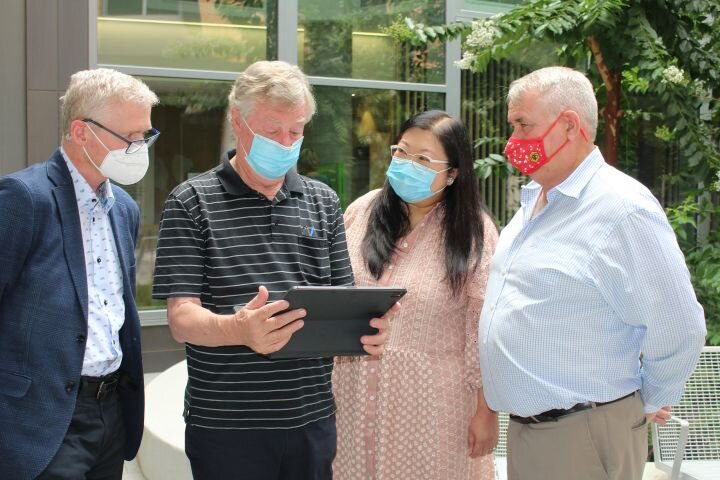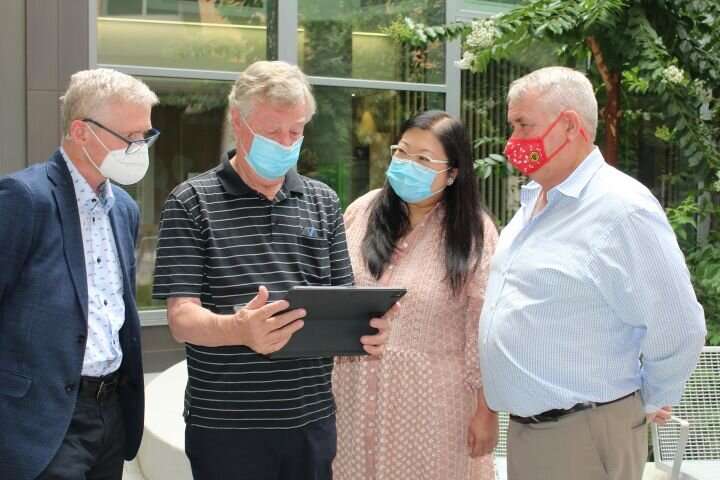

A world-first study at the Albury Wodonga Regional Cancer Center has found that photographs can improve the supportive care of cancer patients aged over 70.
However, more research is needed before it can become part of standard practice.
The project, titled Geriatric Oncology in the Instagram Era, was the joint initiative of Border Medical Oncology, the UNSW Rural Clinical School and the La Trobe University John Richards Center for Rural Ageing Research.
A $20,000 grant was provided by the Albury Wodonga Regional Cancer Center Trust Fund to trial the use of photos to learn more about the patients’ identity, values and environment.
Project lead, oncologist Associate Professor Christopher Steer, said the photos provided a greater understanding of the patients involved in the study, and resulted in more patient-centered care.
“It helped us focus on what matters to the patients and to not take things for granted,” he said.
“For example, one patient who was in her late 80s submitted a photo of her golf trophies as something that was important to her.
“Based on her age you wouldn’t have thought she was still out playing golf, but she had the photograph to prove it.
“This enabled us to have a discussion to learn more about the patient and her ability to do things, and to take ageism out of the equation.”
While the project was found to have a positive impact on supportive care, A/Prof Steer said further research would need to be undertaken to integrate it into everyday care.
“Photovoice is feasible, but it’s just not practical,” he said.
“We learned that we could do it, but you need increased resources and time to put it into standard practice.”
The eight-month study, completed in November last year, involved 18 cancer patients aged 70 years and over.
Nine of those patients were asked to provide photographs representing their identity, home environment, something that’s important to them and their mode of transport.
The photos were then used to undertake a 45-minute interview and produce a one-page summary.
The study also included a 15-minute geriatric assessment questionnaire which is still being used at the cancer center to assess older patients.
Harry Thomas, 75, of Beechworth, was invited to take part in the research after being treated for colon cancer last year.
Mr Thomas, who is chair of the Beechworth Health Service board, believes the project was “extremely beneficial” in allowing clinicians to understand potential strengths and challenges for their patients.
“Christopher got a good insight into who I am and what I’m about, and you would expect that would result in better outcomes for people,” he said.
A/Prof Steer said the project has fostered collaboration between the cancer center and La Trobe with further research to be undertaken into patient-centered care.
Since the project began, A/Prof Steer said most clinicians now show a photograph of the patient in the weekly new patient meetings.
“This puts the patient more at the center of our discussions,” he said.
“So, it appears to have had a flow on benefit for all patients, not just the older patients.”
The project was carried out by UNSW medical student Darren Jayasuriya as part of his fourth year Independent Learning Project.
Source: Read Full Article